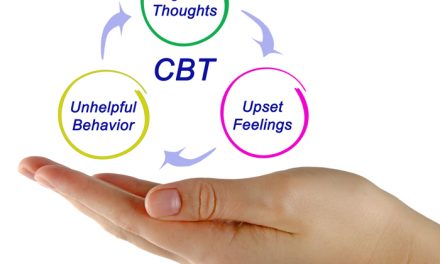In a recent blog post, we wrote about our new doggy co-workers, Moose and Bear. We explored the various ways in which animals can be helpful to a person in recovery from a substance use disorder. As we noted in that post, animals can provide a useful reflection of a person’s emotions, provide unconditional love, and encourage you to take care of yourself as you take care of them. All in all, the post was decidedly positive about animal and human connection.
In this post, however, we are going to look at animals—dogs, in particular—in a different, more metaphorical way. Imagine, if you will, a dog that just will not stop barking.
You know the kind of dog we mean. They bark when they are happy or sad or lonely or scared or angry. They bark when you come home and when you leave. They bark when a stranger or a friend or a relative comes to your door. They bark for snacks and then bark for more snacks. They bark when they need to go out, and once they are out, there is a whole world of things to bark at—other dogs, delivery people, butterflies, and more (much more). It can seem like there is simply no way to get the dog to adopt a quieter approach to life.
A persistently barking dog, like the one we have described, is a lot like the cravings you will likely experience in recovery from a substance use disorder. And sometimes it can feel like those cravings will never stop demanding your full attention while making it hard for you to think clearly. If your cravings overwhelm you, you could find yourself experiencing a relapse.
So how can you get your cravings to stop barking at you? We have some ideas.
Giving in Is Never the Best Solution
When a dog is barking and barking and barking, it can seem like you have to do whatever it takes to get them to stop. For example, if they are clamoring for a treat, you might feel like you have to give them that treat just to get them to calm down. And it might work—but probably not for very long.
After all, you have now taught your dog that barking is an effective way to get a treat, right?
Cravings work similarly. When you are in the grip of a strong craving, it might seem like you have to do whatever it takes to make that craving subside. It might seem clear to you that the easiest way to end a craving is to give in to it.
But just like rewarding a barking dog leads to more problems in the future, giving into a craving for drugs or alcohol can upend all the hard work you have done in recovery. While a relapse does not represent the end of your recovery efforts, it certainly is not something to be desired—and that means giving into a craving is not the right move.
Here are some better options to pursue when a craving is hounding you:
- Get together with a friend, family member, or your recovery sponsor. Spending time with a supportive individual can ensure you make it to the other side of the craving. Whether you go for a cup of coffee, go for a walk, or simply chat, the companionship can both distract you from the craving and remind you of the reasons your recovery is important to you.
- Engage with a mindfulness practice known as “urge surfing” or try some breathing exercises that can lessen the anxiety that can be caused by a powerful craving. Taking the time to center yourself in the present moment can help you resist the call of the craving.
- Do something you truly enjoy. Read a favorite book or watch a favorite show. Work a puzzle. Head to the local museum. Get out in the garden. When you dive into your hobby, you give your brain something fun to focus on instead of the craving you are experiencing.
There are also several things you can add to your regular routine to make it less likely that overwhelming cravings will arise:
- Attend recovery meetings regularly
- Practice meditation, mindfulness, or yoga as a way to ground yourself in the present moment
- Focus on eating healthily, sleeping restfully, and exercising regularly
- Avoid people and places that you know might trigger a craving
- Maintain a growth mindset and a spirit of gratitude
Having strategies to deal with cravings as they arise and for lessening the occurrence of cravings are equally important—just like it is important to find effective ways to quiet a barking dog in the moment and to train them to bark less overall.
With The Aviary, You Aren’t Barking Up the Wrong Tree
Located near St. Louis, Missouri, The Aviary Recovery Center provides exceptional treatment for those who are struggling with a substance use disorder. We are committed to evidence-based and personalized treatment plans that take your specific situation and needs into account. You can rely on our expertise, experience, and empathy—and you can count on us to support you through the treatment process and beyond.










